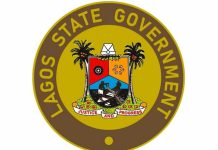The long-awaited guidelines for the participation of informal sector workers in the Contributory Pension Scheme (CPS) also known as Micro Pension, has been made public with the potential to massively boost the pension industry in the country.
Already, enrollees into the CPS have risen to 7.90 million as at February, 2018, the National Pension Commission (PenCom) has revealed.
The Commission, at a programme in Uyo, Akwa Ibom State, informed that “it is intensifying efforts at ensuring the provision of necessary infrastructure for the launching of the Micro Pension Scheme in line with the Commission’s strategic objective of expanding coverage of the CPS to the under-served sectors. This is a major kernel of the strategy for expanding coverage of the Contributory Pension Scheme.
Meanwhile, the Guidelines for the Micro Pension Scheme are being finalised preparatory to the commencement of the scheme.
According to the guidelines uploaded from the commission’s website: “The Pension Reform Act (PRA) 2014 expanded coverage of the CPS to the self-employed and persons working in organisations with less than three employees.
As this category of workers constitute the larger percentage of the working population in the country, there is no doubt that to achieve the Pension Industry’s strategic objective of covering 30 per cent of the working population in Nigeria under the CPS by the end of 2024, all efforts should be made to extend coverage to this important segment of the Nigerian economy.
“In addition, due to their widely dispersed nature and generally low and irregular incomes, there is need to provide a pension plan that would meet their special characteristics. In this regard, the Micro Pension Plan initiative has been conceived within the context of an industry-wide strategy to bring this class of workers on board. In implementing this initiative, the informal sector has been segmented into three broad categories; The low-income earners, the high income earners and the SMEs.
Each of these categories is going to be targeted with appropriate pension products and sensitisation programmes that meet their peculiarities. However, it is evident that a robust technological platform that would support the provision of customer services is necessary to effectively and efficiently register, collect contributions, provide Retirement Savings Account support, pay benefits and provide financial advisory services to this class of workers.
“Coincidently, special mobile phone applications had been successfully implemented in some jurisdictions for financial transactions including provision of pension services to the self-employed and informal sector workers. The success stories of these applications drive the confidence that similar platform can be designed and implemented in Nigeria.
Consequently, the Commission had already commenced the sensitisation of service providers and relevant regulators as well as the targeted workers in the informal sector with a view to creating the enabling environment and buy-in.
It added that in addition, “a department has been established in the Commission to drive the implementation of the Micro Pension Plan.”













